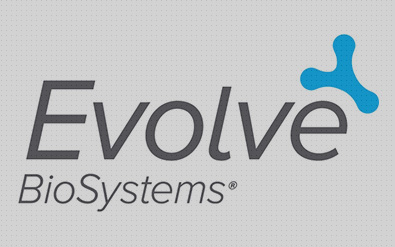DAVIS, Calif., Sept. 10, 2019 /PRNewswire/ — Findings from a new study published today in Pediatric Research show that feeding activated Bifidobacterium infantis (B. infantis) EVC001 to breastfed infants reduced markers of chronic intestinal inflammation by up to 98 percent during the first two months of life, which is a critical period of immune system development. The study was led by researchers from the University of California, Davis and was funded by Evolve BioSystems, a company leading the field of infant gut microbiome research.
Implications of the study
The study’s findings represent a milestone in reducing intestinal inflammation during infancy, an occurrence linked to the development of allergic and autoimmune conditions later in life. This study also provides a further understanding of how the infant gut microbiome, the collection of microorganisms living in the gut, influences overall health.
“As we increasingly look to the gut microbiome to solve major health issues, it’s important that we identify the specific abilities of bacterial strains (i.e. probiotics) when using objective markers of clinical outcomes in studies which demonstrate the capacity of these bacteria to resolve well-defined clinical problems as a result of their administration to the host,” said Dr. Benjamin Gold, MD, Pediatric Gastroenterologist at Children’s Center for Digestive Healthcare, LLC. “This well-designed and rigorously conducted study shows that B. infantis EVC001 has unique properties in terms of its ability not only to lower important markers of inflammation levels, but also to colonize the infant gut so that clinical benefits may be seen both in the short and longer-term basis.”
In recent decades, the United States and other developed countries have experienced an alarming rise in inflammation-linked conditions such as asthma, eczema, diabetes, allergies, inflammatory bowel diseases (IBD) and celiac disease. While some of these conditions primarily manifest during childhood or adulthood, the root of these ailments may stem from the bacterial makeup of the gut during infancy.
Recent studies indicate that the majority of babies born in the U.S. today have a high abundance of pathogenic gut bacteria during the time when their immune systems are developing. This phenomenon is thought to be due in part to the generational loss of the protective gut bacteria B. infantis, which has disappeared as an unintended consequence of decades of C-section delivery and antibiotic use.
Details of the study
Breastfed infants were fed activated B. infantis EVC001 for 21 days, and intestinal inflammation was measured by key markers in their stool, including cytokines and calprotectin. The significant reduction in inflammation was sustained throughout the full 60 days of the trial, 30 days after B. infantis EVC001 feeding was discontinued, indicating the benefits of feeding B. infantis EVC001 persist in the infant gut beyond supplementation.
Key findings:
- Infants fed B. infantis EVC001 showed a 98% reduction in pro-inflammatory cytokines, markers of intestinal inflammation, as well as improved intestinal permeability, which is often described as “leaky gut” and a possible precursor of autoimmune disorders such as Type 1 Diabetes [1].
- Among the 37 types of bacteria commonly found in the infant gut, beneficial Bifidobacterium was the only gut bacterium correlated with a significant reduction of key inflammation markers in this study.
- Higher abundance of Bifidobacterium, in general, was significantly correlated with lower levels of calprotectin. In contrast, infants with low Bifidobacterium exhibited calprotectin levels similar to those shown to be associated with higher risk of asthma and atopic dermatitis [2].
Previous research supports the benefits of Bifidobacterium
Other studies have shown that B. infantis is indispensable for creating a protective foundation for the infant gut. It is clinically proven to reduce the abundance of potentially harmful bacteria, including E. coli, Clostridia and Streptococcus, which have been linked to an increased risk of developing colic or autoimmune conditions [3,4]. B. infantis has also been proven to significantly reduce antibiotic resistant bacteria in the infant gut.
“Reducing intestinal inflammation in an infant’s first 100 days of life is critical, as this is a period of rapid growth and development of the immune system,” said study author Dr. Bethany Henrick, Adjunct Assistant Professor, University of Nebraska Lincoln, and Director of Immunology at Evolve BioSystems. “B. infantis shows promise as a method for reducing intestinal inflammation, which has been linked to a host of long-term health issues.”
About Evolve BioSystems
Evolve BioSystems, Inc. is a privately-held microbiome company dedicated to researching solutions to establish, restore, and maintain a healthy gut microbiome. Evolve is a portfolio company of the Bill & Melinda Gates Foundation and Horizons Ventures, the venture division of the Li Ka Shing Foundation. Evolve is a spin-off from the Foods for Health Institute (FFHI) at the University of California, Davis and builds on more than a decade of research into understanding the unique partnership of the infant gut microbiome and breast milk components.
References:
[1] Maffeis, Claudio, et al. “Association between intestinal permeability and faecal microbiota composition in Italian children with beta cell autoimmunity at risk for type 1 diabetes.” Diabetes/metabolism research and reviews 32.7 (2016): 700-709.
[2] Orivuori, L., et al. “High level of fecal calprotectin at age 2 months as a marker of intestinal inflammation predicts atopic dermatitis and asthma by age 6.” Clinical & experimental allergy 45.5 (2015): 928-939.
[3] Arrieta, M.C., et al., Associations between infant fungal and bacterial dysbiosis and childhood atopic wheeze in a nonindustrialized setting. J Allergy Clin Immunol, 2018. 142(2): p. 424-434 e10.
[4] Rhoads, J.M., et al., Infant Colic Represents Gut Inflammation and Dysbiosis. J Pediatr, 2018. 203: p. 55-61 e3.
Contact: Crisel Ortiz, 1-415-989-9000, crisel@msrcommunications.com
SOURCE Evolve BioSystems, Inc.



